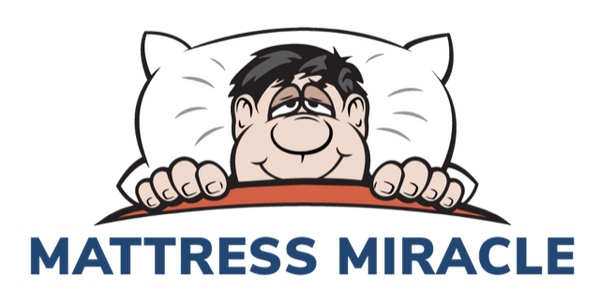In This Article:

Quick Answers
What temperature for sleeping? 15-19°C (60-67°F). Cooler than most people expect. Your body temperature drops when you sleep, and a cool room helps that happen.
How much sleep do I need? 7-9 hours for adults. But quality matters too - uninterrupted sleep is better than 9 hours of tossing and turning.
How do I fall asleep faster? Same bedtime every night. No screens an hour before bed. Keep it cool and dark. And honestly, a supportive mattress helps more than people realize.
How Poor Sleep Weakens Your Immune Defenses
You wake up tired after six hours of broken sleep. A week later, you're sick. Coincidence? Probably not. The connection between sleep and your immune system is one of the most well-documented relationships in health research, and it explains why some people catch everything going around while others stay healthy.
What Happens to Your Immune System When You Don't Sleep
Your immune system does most of its work while you're asleep. During deep sleep, your body produces cytokines, proteins that target infection and inflammation. It also makes T cells, the white blood cells that attack infected cells. Cut your sleep short, and you're cutting this production short.
A 2024 study from Carnegie Mellon found that people who slept less than 6 hours were 4.2 times more likely to catch a cold than those sleeping 7+ hours. Not slightly more likely. Four times more likely. The researchers controlled for age, stress, fitness, and other factors. Sleep itself was the variable.
The Numbers That Should Worry You
Sleep deprivation affects your immune system faster than most people realize:
- After one night of 4 hours sleep: Natural killer cell activity drops by 70%. These cells are your first defense against viruses.
- After a week of 6 hours sleep: Gene expression changes in 711 genes, including those controlling immune response.
- Chronic short sleep: Vaccination effectiveness drops significantly. Your body doesn't build full protection because it can't mount a proper immune response.
Why This Matters in Brantford Winters
Ontario winters are cold and flu season. Kids bring germs home from school. Offices spread viruses through shared air. The Wayne Gretzky Sports Centre fills with hockey families passing coughs back and forth.
Your immune system needs to be at full strength. But winter is also when sleep gets disrupted most: dry air, fluctuating temperatures, darker days throwing off your rhythm. It's a double hit.
The Sleep-Inflammation Connection
Poor sleep doesn't just weaken your defenses. It actually creates inflammation. Your body produces more inflammatory markers when you're sleep-deprived. This low-grade inflammation stresses your immune system, making it less effective when real threats appear.
Chronic inflammation is linked to heart disease, diabetes, and autoimmune conditions. Sleep isn't just about feeling rested. It's about keeping your whole system running properly.
Deep Sleep Is Where It Happens
Light sleep doesn't cut it. The immune repair work happens during deep sleep, the third and fourth stages of your sleep cycle. If you're waking frequently, sleeping hot, or uncomfortable enough that you never settle into deep sleep, your immune system suffers.
This is where your mattress actually matters. An uncomfortable sleep surface keeps you in lighter sleep stages. You get the hours but not the quality. A supportive hybrid mattress that relieves pressure points helps you reach and maintain deep sleep longer.
Temperature and Immune Function
Your body temperature drops as you fall into deep sleep. A room that's too warm prevents this natural cooling, which disrupts sleep cycles. The ideal sleep temperature is 15-19°C (60-67°F), cooler than most people keep their bedrooms.
Mattresses that sleep hot make this worse. Memory foam, in particular, can trap body heat. If you're waking up sweaty, you're probably not getting the deep sleep your immune system needs.
What You Can Actually Do
Prioritize 7-8 Hours
Not 6 and "I function fine." The research is clear: 7-8 hours is what your immune system needs. If you're consistently getting less, you're running with compromised defenses.
Fix What's Waking You Up
If you wake frequently, figure out why. Too hot? Too uncomfortable? Partner movement? Snoring? Each problem has a solution. Split king setups solve partner disturbance. Cooling mattresses solve temperature issues. Adjustable bases help with snoring and breathing.
Create a Dark, Cool Cave
Your bedroom should be cool, dark, and quiet. Blackout curtains help. A fan or white noise machine helps. Keep screens out of the bedroom.
When to Upgrade Your Sleep Setup
If you're getting sick frequently despite eating well, exercising, and managing stress, look at your sleep. Not just the hours but the quality. Are you waking rested? Are you sleeping through the night?
If your mattress is more than 7-8 years old and you're not sleeping well, it's probably contributing. A worn mattress doesn't support you properly, which means more tossing, more waking, less deep sleep.
The Investment Perspective
A quality mattress costs money. So does getting sick repeatedly. Time off work. Doctor visits. Medications. Feeling lousy for days. When you add up the cost of poor sleep, a good mattress looks like health insurance that actually pays off every night.
Come Talk to Us
We're at 441½ West Street in Brantford. If you're not sleeping well and want to figure out why, come in. We'll talk through what might be causing the problem and what options exist. No pressure, just information.
Mattress Miracle: helping Brantford stay healthy through better sleep since 1987.

